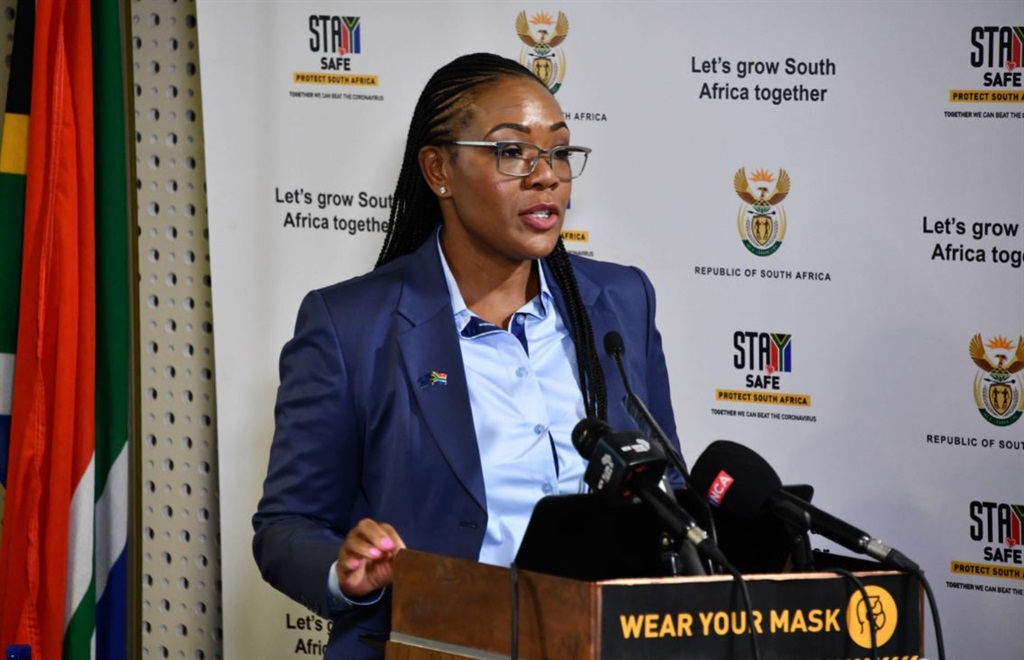
Auditor-General (AG) Tsakani Maluleke has expressed concerns over weak financial controls in some state-owned enterprises (SOEs), which have resulted in their audit outcomes regressing.
DA chief whip Natasha Mazzone said the increase of irregular expenditure by 34% to R167 billion in national and provincial government departments was the clearest evidence yet that President Cyril Ramaphosa’s promise of a new dawn had failed to deal with financial malfeasance in government and across SOEs.
Mazzone said:
Incremental improvement
Although the overall audit outcomes of the 2020-21 Public Finance Management Act (PFMA) general report reflected “incremental improvement” in the national and provincial government audits – with an increase in the number of clean audits – the same could not be said about the country’s troubled state-owned enterprises, Maluleke told Parliament on Wednesday.
Her report set out the deteriorating financial health of SOEs, which has increased the financial burden on the government, through bailouts and guarantees.
These concerns spill over into the ability of SOEs to fulfil their mandates and directly affects the South African economy and, ultimately, the lived experiences of South Africans.
Maluleke revealed that there were seven SOE audits outstanding for this year that had material uncertainties on their ability to continue as a going concern in previous years.
These included Alexkor, the Land and Agricultural Development Bank [Land Bank], the Independent Development Trust, the SA Post Office, SAA, SA Express Airways and Denel.
READ: Combatting corruption is key to creating a sustainable path of future growth for South Africa
“We are particularly concerned about a growing trend of late or non-submission of financial statements, and thus performance reports and annual reports, specifically at SOEs. This affects oversight’s ability to hold SOEs accountable and implement consequence management where necessary,” said Maluleke.
She added that it was important for the executive and oversight to pay particular attention to addressing the deficiencies at SOEs and ensure that appropriate interventions were urgently implemented to enable them to effectively fulfil their mandates.
The AG called for higher levels of accountability, to ensure that public finances were spent efficiently on service delivery.
She said the audit outcomes of national and provincial governments and their entities, though improving, continued to show slow progress in the journey towards wholesale good governance.
Key departments not performing
Besides the SOEs that she had red-flagged, the AG said the key service delivery departments of health, education, housing and public works were also “lagging behind”.
In her report, tabled under the theme, “accelerate improvements in accountability”, Maluleke said poor financial and performance management in those departments meant that citizens were denied critical services that can help sustain and improve their lives.
In the 2020-21 audit cycle, the AG’s office audited 679 departments and public entities. This report focused on the results of 425 audits.
Maluleke said there were 34 incomplete audits, which required attention and decisive action from oversight and executive authorities.
Maluleke said:
“Therefore, oversight structures need to pay particular attention to service delivery departments, and all role-players must be vigilant and exercise their duties with diligence.”
Clean audits growing
She noted that the number of clean audits increased every year, “due to significant effort and commitment by the leadership, officials and governance structures” of the auditees that produced the desired audit outcomes.
She announced that there were 115 auditees (48 departments and 67 public entities) that obtained a clean audit outcome, compared to 109 in the previous year.
Together, these auditees were responsible for 19% of the R1.9 trillion expenditure budget managed by the national and provincial governments.
READ: Zaakirah Vadi | Why the public must act against corruption
At least 31 auditees came close to obtaining a clean audit.
Maluleke was also encouraged that 61 auditees have managed to retain their clean audit status since the first year of the current administration.
“While we are yet to see the progressive and sustainable improvements required to realise an overall change in outcomes, we note and acknowledge the efforts of the many accounting officers and authorities that seek to instil a culture of good governance, accountability and discipline in the system,” said Maluleke.
Overspending
Regarding the financial health of departments, Maluleke said that unauthorised expenditure remained high at a total of R3.21 billion, mostly due to overspending of the budget.
The departments of health, education and public works had the poorest financial health of all, having incurred 90% of all unauthorised expenditure and deficits amounting to R15.65 billion.
Five provincial health departments had deficits totalling R6.2 billion.
Maluleke also revealed that the provincial health departments paid out R1.76 billion for medical negligence claims, while the estimated settlement value of unpaid claims at year-end was R124.15 billion. These amounted to 75% of the total claims against the state.
Seven provincial health departments had unpaid claims at year-end that exceeded their entire operating budget for the next year.
The report indicated that fruitless and wasteful expenditure remains high, with 224 auditees losing a combined R1.72 billion to it in the current year.
The report revealed that key service delivery departments and SOEs were, once again, the main contributors, wasting a combined R900 million [52%].
Irregular expenditure reported in the financial statements increased to R166.85 billion, from R109.82 billion in the previous year.
Maluleka said:
Disclaimed opinions
At least 13 public entities received disclaimed opinions in 2020-21 – the worst audit outcome an auditee could get. The same public entities had also received disclaimed opinions in 2019-20.
Nine public entities that had previously received disclaimed audit outcomes had either not submitted their financial statements for auditing by the cut-off date for inclusion in this report, or had submitted them so late that the audit was still in progress.
These entities include the Passenger Rail Agency of SA (Prasa), Independent Development Trust and Denel.
READ: A-G Maluleke calls on auditors to play a vigilant watchdog role to protect public finances
Maluleke called on accounting officers to ensure that they implemented more controls in ensuring not only that the public purse was protected but that there was also service delivery.
She has also promised to issue remedial actions to ensure that people were held accountable.
“We have been clear from the start that we will not hesitate to implement our expanded powers if accounting officers and authorities do not deal with material irregularities with the required urgency. In cases where accountability has failed, we have responded accordingly,” said Maluleke.




 Publications
Publications
 Partners
Partners











